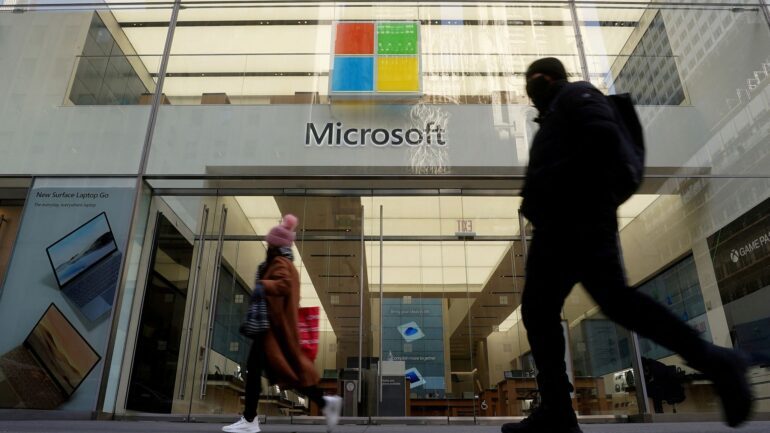TL;DR:
- Microsoft introduces pricing plans for its AI tools, including Bing Chat Enterprise and Copilot.
- Bing Chat Enterprise will cost $5 per user per month, but it will be free for Microsoft 365 enterprise plan subscribers.
- Bing Chat Enterprise offers enhanced data security to address concerns raised by companies like Apple, Spotify, and Verizon.
- Copilot, an AI bot, aids users in various Office tasks and utilizes business data to provide relevant insights.
- Microsoft aims to monetize AI features to recoup its significant investment in OpenAI.
- The pricing model emphasizes the value and sustainability of AI technologies.
- Competitors like Google have yet to unveil their pricing strategies.
- The subscription fees reflect a broader market race for dominance in the generative AI space.
Main AI News:
Microsoft, the tech giant renowned for its groundbreaking innovations, is making strategic moves to capitalize on its investment in OpenAI. After the remarkable launch of the revamped Bing search engine, powered by cutting-edge generative AI technology, and the integration of OpenAI’s groundbreaking capabilities into various Office products, Microsoft has now set its sights on monetizing its AI tools by introducing new pricing plans targeted at businesses.
Enter Bing Chat Enterprise, an advanced communication platform infused with AI prowess. Starting at an affordable rate of $5 per user per month, this service is designed to enhance productivity and streamline organizational workflows. However, organizations already subscribing to Microsoft 365 enterprise plans will enjoy complimentary access to Bing Chat Enterprise, reaffirming Microsoft’s commitment to providing value for its loyal customers.
It’s worth noting that concerns over security have led several prominent companies, including Apple, Spotify, and Verizon, to impose restrictions or outright bans on the use of generative AI tools such as ChatGPT. In response, Microsoft has implemented robust security measures in Bing Chat Enterprise, offering “commercial data protection,” as highlighted in an official press release. By limiting this advanced data security feature exclusively to paying users, Microsoft ensures that their clients can have complete peace of mind regarding the privacy and confidentiality of their information.
On another front, Microsoft has also unveiled Copilot, an intelligent AI assistant designed to facilitate seamless collaboration across the entire Office software suite. With Copilot’s invaluable assistance, users can effortlessly analyze data in Excel, craft captivating presentations in PowerPoint, and distill meeting summaries in Teams, among many other essential tasks. This remarkable AI bot leverages a wealth of business data, encompassing documents, emails, calendars, chats, meetings, and contacts, to provide highly relevant and actionable insights.
Embracing these groundbreaking advancements comes at a cost, as Microsoft has introduced pricing plans for AI bots to ensure their sustainability. It has long been recognized that free lunches are nothing but a myth, and the time has come for companies like Microsoft to offer compelling reasons for customers to invest in these transformative features. While a free version of ChatGPT remains available, OpenAI now presents ChatGPT Plus, a premium subscription priced at $20 per month, boasting the unparalleled power of their latest state-of-the-art language model. Google, which recently introduced its own Bard chatbot in response to ChatGPT, has yet to unveil its pricing strategy, leaving the field open for Microsoft’s strategic dominance.
These subscription fees not only provide companies with a means to recoup their extensive investments in AI technology development but also signify a broader race for supremacy in the generative AI landscape. Microsoft, in particular, has invested a staggering $10 billion in OpenAI, pitting itself against formidable rivals such as Google, Amazon, and Meta. While the exact costs of running these sophisticated AI tools, which rely on specialized chip-equipped servers, remain undisclosed, it is abundantly clear that superior iterations of AI chatbots are emerging, and companies now anticipate their users to contribute financially.
Conclusion:
Microsoft’s strategic pricing plans signify a proactive approach to monetizing its AI investments and positioning itself as a key player in the market. By introducing subscription-based models for Bing Chat Enterprise and Copilot, Microsoft aims to not only recoup its substantial investment but also encourage businesses to recognize the value and reliability of AI tools. The pricing strategies also reveal the competitive landscape, with Microsoft vying against major players like Google, Amazon, and Meta for dominance in the generative AI market. This development indicates a pivotal shift where companies expect users to contribute financially towards the adoption of advanced AI technologies.

